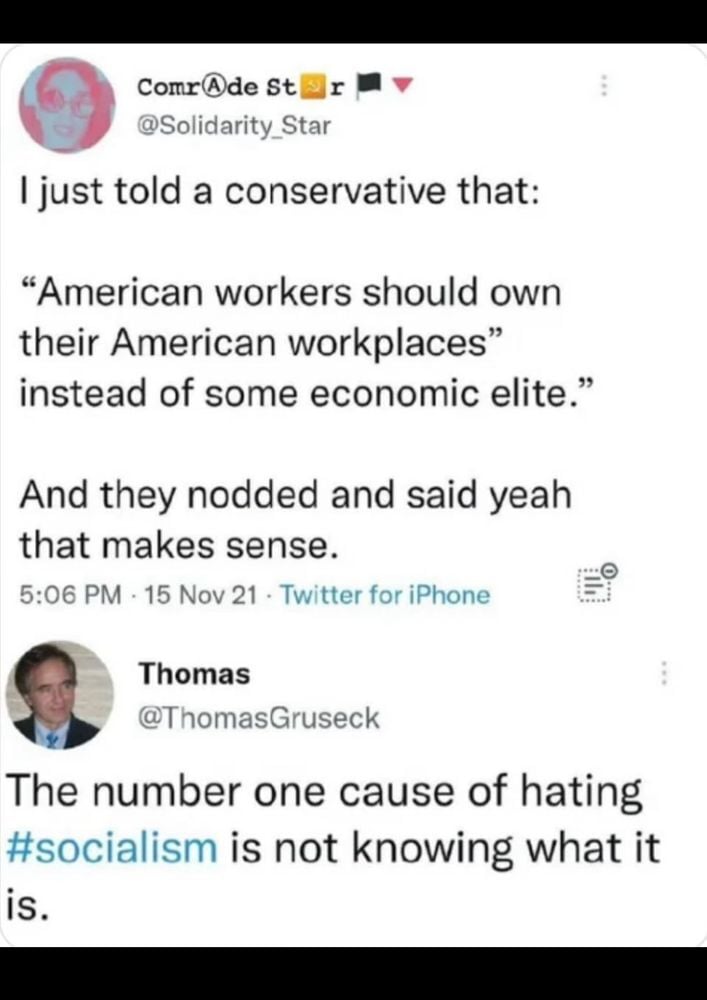Late Stage Capitalism
A place for for news, discussion, memes, and links criticizing capitalism and advancing viewpoints that challenge liberal capitalist ideology. That means any support for any liberal capitalist political party (like the Democrats) is strictly prohibited.
A zero-tolerance policy for bigotry of any kind. Failure to respect this will result in a ban.
RULES:
1 Understand the left starts at anti-capitalism.
2 No Trolling
3 No capitalist apologia, anti-socialism, or liberalism, liberalism is in direct conflict with the left. Support for capitalism or for the parties or ideologies that uphold it are not welcome or tolerated.
4 No imperialism, conservatism, reactionism or Zionism, lessor evil rhetoric. Dismissing 3rd party votes or 'wasted votes on 3rd party' is lessor evil rhetoric.
5 No bigotry, no racism, sexism, antisemitism, homophobia, transphobia, ableism, or any type of prejudice.
6 Be civil in comments and no accusations of being a bot, 'paid by Putin,' Tankie, etc.
view the rest of the comments

What? My question isn't if I'd be paid for my work. My question is, how does the overhead get paid? Is it equal among all people? How does it work?
Would the worker pay to operate the business? Essentially yes*, the non-wage operating cost of a business could be withheld from the workers' wages to pay for things like the electric bill of the building they work in. This is because the workers of the companies who provide that electricity also have a right to what their labor provides. The other possibility is that the government would pay for these costs through taxes (which is indirectly paid for by the population, of course).
Just because a business is worker-owned doesn't mean that every dollar of revenue is distributed to its workers. All companies would operate more like a union or non-profit company where they are limited in the amount of money they can stockpile, but how that money is raised and spent would be determined by the workers or (more likely) leadership that the workers elect to run the company.
*According to Marx, end-stage communism wouldn't have a need for fiat money and the transition to that state is some form of socialism. Marxists have different ideas for what a government and economy look like in these various stages and how the transition between them happens. Because it's easier to imagine and explain an economy similar to what we currently have, this hypothetical assumes an economy with some form of socialism that uses fiat money, businesses that compete with each other, and the government is some kind of representative democracy.
Okay, so another question. Where does the initial capital and idea come from to create the business? Also, take someone who pours all his money and leverages himself to near bankruptcy to create a business to make a future and a return on that investment in that business. What happens there?
Others are answering theoretically but these companies already exist. You can Google employee owned companies or if in the US I believe ESOPs are the most common. That can probably answer most of your questions. Personally I don't think I'd ever work for a company that isn't employee owned, it's amazing.